Though Poe was best known for his tales of mystery and horror in the forms of poetry and short stories, he was much more than just the man who made us forever fear ravens. Widely believed to be the inventor of the detective fiction genre in the English-speaking world—sorry Arthur Conan Doyle—Poe also contributed to the science fiction genre and was a literary critic.
Since there’s only so many times one can read “The Tell-Tale Heart” or “The Raven,” here are 11 authors who match the horror-telling ability of Poe. If you’re a fan of his scary stories and frightening poetry, you’ll delight in downright terrifying authors like Edgar Allan Poe.
Harlan Ellison
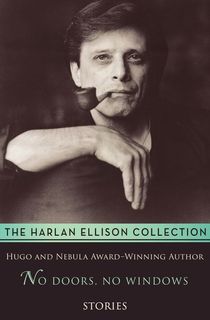
No Doors, No Windows
Recommended read: No Doors, No Windows
Ellison once described his work by saying, “My stories go out from here and raise hell.” Though the prolific author has won numerous awards in the science fiction genre, he’s also a mystery and horror writer. His work No Doors, No Windows attempts to examine fear and includes 16 terrifying short stories. Like Poe, he’s able to fully immerse readers into his dark world—using fear, instead of more obvious horror, to keep the feeling of dread with them.
Clayton Rawson

No Coffin for the Corpse
Recommended read: No Coffin for the Corpse
Rawson was a mystery writer who incorporated his love of magic into his detective novels, which follow The Great Merlini. He was one of the founding members of the Mystery Writers of American, which present the Edgar Awards annually. In No Coffin for the Corpse, a man that was killed and buried by his assailant comes back to haunt in the tone of The Tell-Tale Heart.
Guy Endore

The Werewolf of Paris
Recommended read: The Werewolf of Paris
Best known for writing one of the first werewolf novels, Guy Endore’s Gothic fiction is a cult favorite of horror fans. His best-known novel, The Werewolf of Paris, was published in 1933 and is about a werewolf dealing with his affliction. Endore’s dark and ominous tone will please fans of Poe—with his story occurring during the events of the Franco-Prussian War.
Henry James
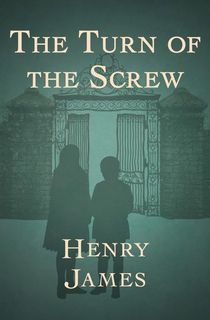
The Turn of the Screw
Recommended read: The Turn of the Screw
Largely known for his rich works of literary realism, Henry James was also a master craftsman of Gothic madness and suspense. In The Turn of the Screw, a young governess at a secluded country estate desperately tries to protect the children from sinister forces that only she can see. The supernatural tale haunts readers long after the last page is turned–just like Poe’s best stories.
Sir Arthur Conan Doyle
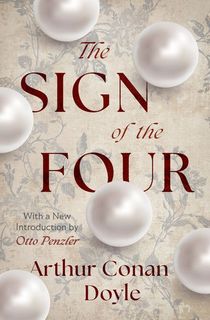
The Sign of the Four
Recommended read: The Sign of the Four
No list of Poe successors would be complete without Sir Arthur Conan Doyle. The celebrated author never shied away from admitting his inspiration for Sherlock Holmes stemmed from Poe’s own detective, Monsieur Dupin. The Sign of the Four, the second novel in the Sherlock Holmes series, introduces Doctor Watson’s future wife Mary—as she hires Holmes to find her father who was last seen in India.
Bram Stoker
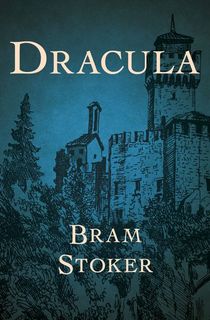
Dracula
Recommended read: Dracula
Bram Stoker is best known for defining the vampire genre with his Gothic novel, Dracula. The frightening tale, told in a less obviously horrific way in the epistolary style, is sure to delight fans of Poe’s subtle horror. In addition to writing, Stoker was involved in theater and managed Henry Irving’s Lyceum Theatre in London for 27 years.
H.G. Wells
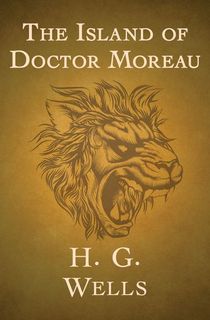
The Island of Doctor Moreau
Recommended read: The Island of Doctor Moreau
While H.G. Wells is best known for The Time Machine and The War of the Worlds, he’s also the author of some more horrific science fiction. In The Island of Doctor Moreau, Edward Prendick is shipwrecked on a remote island in the Pacific—unaware of the mad scientist and lab-made horrors that await him. The creepy way Prendick descends into a pit of horror is reminiscent of Poe’s style.
Mary Shelley
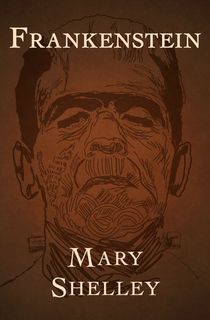
Frankenstein
Recommended read: Frankenstein
Like Poe, Shelley’s style has elements of both the Gothic novel and Romanticism. And to further their similarities—they both were part of early science fiction. Shelley’s popular novel, Frankenstein, tells of Victor Frankenstein and the living monster he creates. Though published in 1818, it’s a terrifying idea in any era.
H.P. Lovecraft
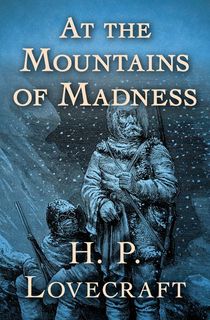
At the Mountains of Madness
Recommended read: At the Mountains of Madness
Lovecraft, like Poe, wrote horror fiction that was quite unlike the literary tradition of his time. The two authors shared certain biographical similarities, as well–both lost their fathers at a young age, and both found literary success primarily after death. In Lovecraft’s novella, At the Mountains of Madness, Lovecraft tells of a chilling exploration of Antarctica in 1930—with the narrator advising that no one attempt to return to the continent.
Shirley Jackson

The Haunting of Hill House
Recommended read: The Haunting of Hill House
Jackson is well-known for her thrilling short story, “The Lottery,” in which a town gathers for an unusually dark tradition. Like Poe, Jackson uses psychological terror, rather than abrupt horror, to engage her audience. In The Haunting of Hill House, readers are left to untangle what is real and what is merely imagined by the characters as they experience the paranormal activities of an old mansion.
Frank Norris
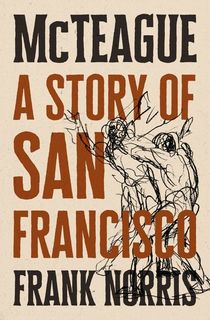
McTeague
Recommended read: McTeague
With Poe as a strong influence, Norris explored the dark realities of violence and poverty in his work. McTeague weaves together envy, jealousy, and murder as it follows a young couple’s courtship, marriage and, ultimately, their demise. Norris, too, often had trouble publishing his work, as editors were shocked by the darkness of his stories.
This post is sponsored by Open Road Media. Thank you for supporting our partners, who make it possible for The Lineup to continue publishing the true crime and creepy stories you love.

